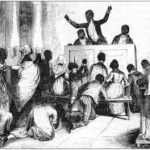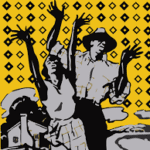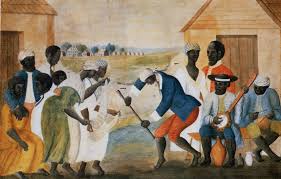True Sounds of the South
Since ancient times, African people have used music to tell historical stories, entertain and share relatable stories. Music illustrated both the victories and the despairs of our people and has unified us in many different parts of the African diaspora. In this same way, for many years have our songs have made major recording studios money but has left those responsible for creating the songs are ignored and with accreditations or payments.
In 1867, the first collections of “slave songs” was produced by a group of white Northern abolitionists. None of the slaves were directly credited for curating these songs and they were not paid of course. When recording the songs were being recorded, they were sung and orchestrated by white people. Major recording studios were making money of the sounds and ideas of those enslaved Africans who were the creatives and innovators, while not even allowing them to at least sing their own songs. Those slave songs each had messages, most were secret codes that allowed the slaves to get messages of how to escape their chains of bondage across to others all under the constant watch of their captors. For example, as explained in the featured video, the spiritual Wade in the water was made by the enslaved to tell how to escape by using the bodies of water around them so they were undetectable by the dogs used to catch the runaways. They included religious elements in these songs as they were integrating into European culture and Christianity was used to assimilate the enslaved. For instance, in the song they are asking for God to “trouble the water” so much so that they will be able to travel through the waters without being spotted.
Everyone knows negro spirituals, there has been renditions, some are taught in schools and they have been commercialized. However, there is no real ownership of these songs; when these songs were created there were not any record deals being given out to them and of course there is no real recognition given to any of the creators because they barely have accurate birthdates of the enslaved people. Unfortunately, this continued to happen for African Americans, who have contributed to the music industry as they did not gain the rights to their sounds or creations and were discarded by the industry once the record company was done with them.




